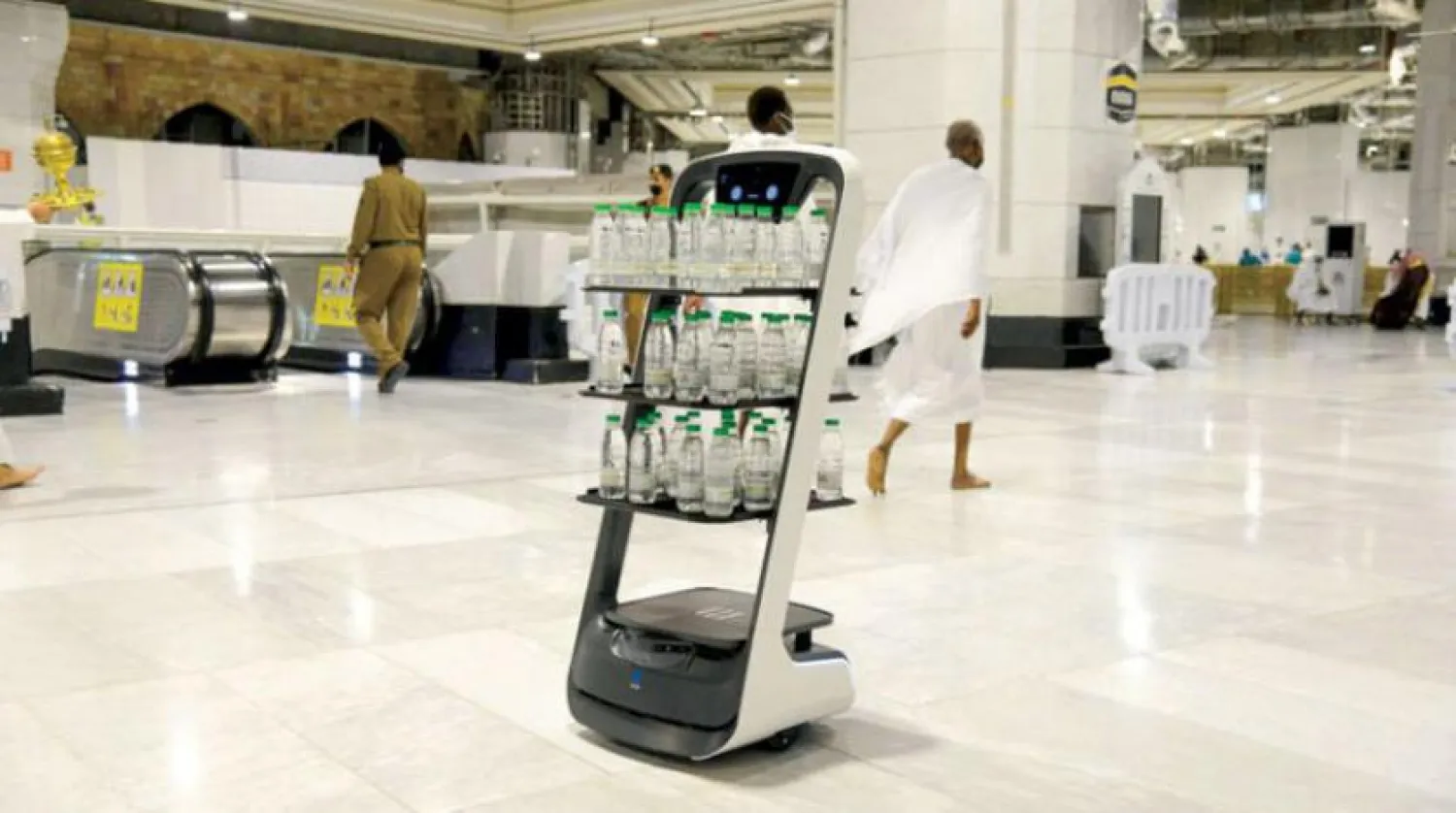Robots, interactive screens, and quality tech solutions are at the disposal of Hajj pilgrims this year, with deployed AI systems being part of a broader Saudi technology, innovation, and data revolution designed to raise the performance of Hajj services.
Such technological integration matches Saudi Arabia’s firm policy for facilitating the spiritual journey of pilgrims visiting Islam’s holiest sites in the Kingdom.
Pilgrims flocking to Makkah to perform the rites of Hajj 2021 will be met with a comprehensive package of technical projects and initiatives reliant on coexistence with digitalization.
For example, a tech-reinforced security gate has been set up at Mekkah’s Shimisi entrance. The gate is fully equipped with intelligent technologies that aid in vetting and inspecting pilgrims over 16 different tracks with ease.
Besides offering various general services, the gate has significantly shrunk the waiting time for incoming pilgrims, even during peak hours.
Moreover, AI robots are prepared to service pilgrims at holy sites, whether by handing out Zamzam water or sterilizers for pandemic control.
Other than the deployment of machinery, relevant authorities and private agencies have launched a host of applications and programs that seek to raise the quality of services offered to pilgrims and ensuring their journey is safe and taken at ease.
Minister of Islamic Affairs, Call and Guidance Sheikh Abdullatif Al Al-Sheikh inaugurated Thursday maintenance and operational projects and initiatives with a total cost of more than SAR 31 million ($8.2 million).
Al-Sheikh affirmed that these projects and initiatives seek to achieve integration and coordination among various agencies to provide the highest standards of safety and service for the visitors of the Two Holy Mosques.
The projects include operation and maintenance contracts, installing smart devices to educate and guide pilgrims, and launching the Wi-Fi service in the Namirah Mosque located in Arafat valley.
Authorities will also install 62 screens to broadcast awareness-raising messages in different languages. The ministry will provide 30 interactive screens for the Islamic electronic library.
Additionally, the ministry will activate an automated response system for answering pilgrims’ queries.









